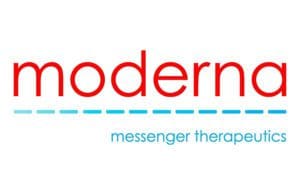 Moderna (NSDQ:MRNA) saw its share price fall 5% in mid-day trading today after the FDA said it would delay authorizing its mRNA-1273 vaccine in 12- to 17-year-olds.
Moderna (NSDQ:MRNA) saw its share price fall 5% in mid-day trading today after the FDA said it would delay authorizing its mRNA-1273 vaccine in 12- to 17-year-olds.
The agency said it needed additional time to investigate the risk of myocarditis in younger vaccine recipients.
FDA informed Moderna that it may not complete its review before January 2022.
Cambridge, Massachusetts–based Moderna’s recent emergency use authorization (EUA) request involved a 100-µg dose of mRNA.
FDA has issued emergency use authorization for the Pfizer-BioNTech (NYSE:PFE/NSDQ:BNTX) vaccine for adolescents 12 to 17 at the 30-µg dose level.
FDA recently authorized the use of that vaccine in children between the ages of 5 and 11, albeit at a lower 10-µg dose level.
Moderna intends to request an EUA of its mRNA-1273 vaccine involving two 50-µg doses in children aged 6 to 11. The company, however, has delayed that request as FDA performs its myocarditis review.
Although the impact of varying dose levels is unclear, the Moderna vaccine may have a higher risk of heart inflammation than the Pfizer-BioNTech vaccine, according to the Washington Post.
In any event, the risk of myocarditis and pericarditis in mRNA vaccine recipients appears to be small. The CDC concluded that there are approximately 12.6 cases per million second-dose mRNA vaccines in individuals aged 12 to 39, according to an article in Circulation.
Filed Under: Drug Discovery, Infectious Disease





Tell Us What You Think!
You must be logged in to post a comment.